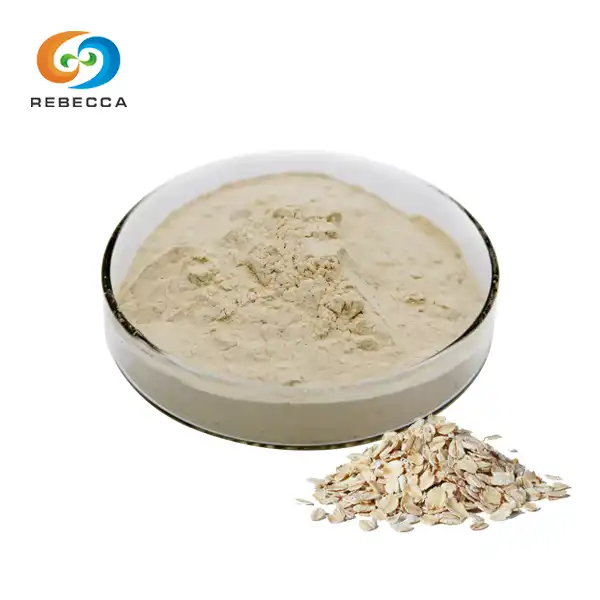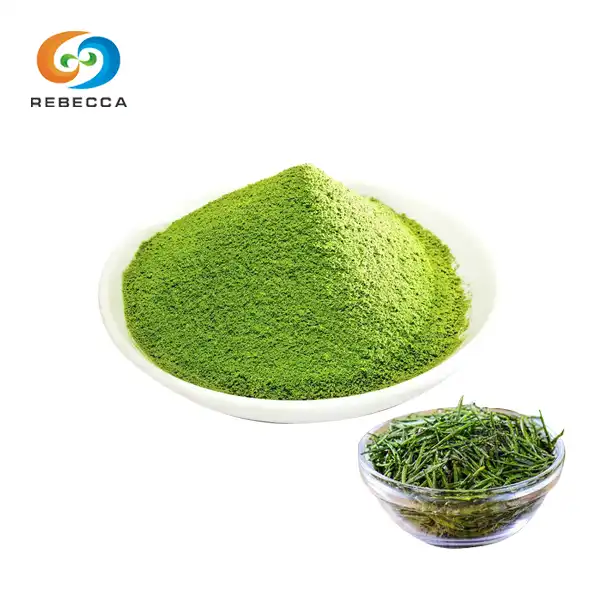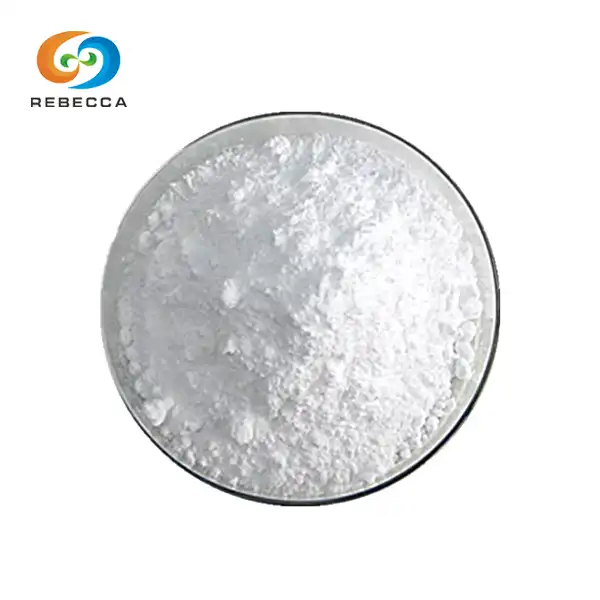Is L carnitine good for your body?
L carnitine powder is an amino acid derivative that has gained popularity in the health and fitness world. As a supplement, it's often touted for its potential to aid in weight loss, improve exercise performance, and support overall health. But what exactly is l carnitine protein powder, and is it truly beneficial for your body? Let's dive into the science behind this supplement and explore its potential advantages and considerations.

Health Benefits of L-Carnitine Supplementation
L-carnitine plays a crucial role in energy production within our cells. It helps transport long-chain fatty acids into the mitochondria, where they can be oxidized to produce energy. This process is essential for maintaining optimal cellular function, particularly in tissues that rely heavily on fatty acid oxidation, such as the heart and skeletal muscles.
One of the most well-known benefits of L-carnitine supplementation is its potential to enhance fat burning and weight loss. Some studies suggest that L-carnitine may increase fat oxidation during exercise, potentially leading to improved body composition over time. However, it's important to note that the effects on weight loss are often modest and may vary among individuals.
Beyond its role in fat metabolism, L carnitine protein powder has been associated with several other health benefits:
- Improved Exercise Performance: Some research indicates that L-carnitine supplementation may enhance exercise capacity and reduce muscle soreness after intense workouts. This could be particularly beneficial for athletes and fitness enthusiasts looking to optimize their training.
- Heart Health Support: L carnitine has shown promise in supporting cardiovascular health. Studies have found that it may help reduce blood pressure, improve blood lipid profiles, and enhance heart function in certain populations.
- Cognitive Function: Acetyl-L-carnitine, a form of L-carnitine, has been studied for its potential neuroprotective effects. Some research suggests it may help improve cognitive function, particularly in older adults or those with neurodegenerative conditions.
- Blood Sugar Regulation: L-carnitine supplementation may have a positive impact on insulin sensitivity and glucose metabolism, potentially benefiting individuals with type 2 diabetes or metabolic syndrome.
While these potential benefits are promising, it's crucial to remember that more research is needed to fully understand the extent of L-carnitine's effects and to determine optimal dosages for different populations.

Side Effects and Safety Considerations of L Carnitine
L carnitine powder is generally considered safe for most people when taken in appropriate doses. However, as with any supplement, there are potential side effects and safety considerations to keep in mind:
Common Side Effects: Some individuals may experience mild gastrointestinal symptoms such as nausea, vomiting, abdominal cramps, or diarrhea when taking L-carnitine supplements. These effects are typically dose-dependent and may subside as the body adjusts to the supplement.
Fishy Body Odor: In some cases, L carnitine supplementation can lead to a fishy body odor. This is due to the production of trimethylamine, a compound that results from the breakdown of L-carnitine in the gut.
Interactions with Medications: L carnitine protein powder may interact with certain medications, including blood thinners and thyroid hormones. It's essential to consult with a healthcare provider before starting L carnitine supplementation, especially if you're taking any medications.
Cardiovascular Concerns: Some research has raised concerns about the long-term safety of L carnitine supplementation. A study published in Nature Medicine suggested that chronic L-carnitine supplementation might increase the production of trimethylamine N-oxide (TMAO), a compound associated with increased cardiovascular risk. However, more research is needed to fully understand this potential risk and its implications for different populations.
Pregnancy and Breastfeeding: While L carnitine is naturally present in breast milk, there isn't enough research to determine the safety of L-carnitine supplements during pregnancy or breastfeeding. It's best to consult with a healthcare provider before using L-carnitine in these situations.
It's worth noting that the majority of studies on L-carnitine have used doses ranging from 2 to 6 grams per day, with few adverse effects reported at these levels. However, individual responses can vary, and it's always wise to start with a lower dose and gradually increase as tolerated.

Who Benefits the Most from L-Carnitine Supplements?
While L carnitine is produced naturally in the body and can be obtained from certain foods, some individuals may benefit more from L-carnitine supplementation than others:
Vegetarians and Vegans: Since l carnitine protein powder is primarily found in animal products, those following plant-based diets may have lower levels of L carnitine in their bodies. Supplementation could help ensure adequate levels.
Older Adults: As we age, our body's ability to produce and utilize L carnitine may decline. Some research suggests that L-carnitine supplementation could help improve muscle function and reduce fatigue in older adults.
Athletes and Fitness Enthusiasts: Individuals engaged in regular, intense physical activity may benefit from its potential to enhance exercise performance and recovery.
Individuals with Certain Health Conditions: People with conditions that affect L-carnitine metabolism or those taking medications that deplete L carnitine levels may benefit from supplementation. This includes individuals with kidney disease, certain genetic disorders, or those undergoing hemodialysis.
People Aiming for Weight Loss: While the effects are often modest, individuals looking to support their weight loss efforts may find L-carnitine supplementation helpful when combined with a balanced diet and regular exercise.
It's important to note that while these groups may potentially benefit from L carnitine supplementation, individual responses can vary. Always consult with a healthcare provider before starting any new supplement regimen, especially if you have underlying health conditions or are taking medications.

Bulk L-Carnitine Powder
L carnitine protein powder is a versatile supplement that offers potential benefits for various aspects of health, from supporting energy production and fat metabolism to potentially improving exercise performance and cognitive function. While generally safe for most people, it's crucial to consider potential side effects and interactions, especially when using higher doses or for extended periods.
As with any supplement, L carnitine should be used as part of a comprehensive approach to health and wellness, including a balanced diet, regular exercise, and proper sleep. It's not a magic solution but can be a valuable tool when used appropriately and under the guidance of a healthcare professional.
Looking for a reliable source of high-quality l carnitine protein powder? Rebecca Bio-Tech is here to meet your needs. Our factory produces this essential supplement at a competitive price, ensuring you get the best value for your investment. With a production capability of 500 tons per year, we have the powerful capacity to fulfill any of your requirements. Whether you need a small batch or a large order, Rebecca Bio-Tech is equipped to deliver. For more information or to place an order, simply reach out to us at information@sxrebecca.com.
References:
- Flanagan JL, et al. (2010). Role of carnitine in disease. Nutr Metab (Lond).
- Pooyandjoo M, et al. (2016). The effect of (L-)carnitine on weight loss in adults: a systematic review and meta-analysis of randomized controlled trials. Obes Rev.
- Fielding R, et al. (2018). L-Carnitine Supplementation in Recovery after Exercise. Nutrients.
- DiNicolantonio JJ, et al. (2013). L-Carnitine in the Secondary Prevention of Cardiovascular Disease: Systematic Review and Meta-analysis. Mayo Clin Proc.
- Montgomery SA, et al. (2003). Meta-analysis of double blind randomized controlled clinical trials of acetyl-L-carnitine versus placebo in the treatment of mild cognitive impairment and mild Alzheimer's disease. Int Clin Psychopharmacol.
- Ruggenenti P, et al. (2009). Ameliorating hypertension and insulin resistance in subjects at increased cardiovascular risk: effects of acetyl-L-carnitine therapy. Hypertension.








